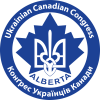On September 7, 1891, two adventurers from present-day Western Ukraine disembarked at Halifax, Nova Scotia onto Canadian soil, which set off the officially recorded presence of people of Ukrainian descent in Canada. They were looking for a better life that was being advertised by pro-Canadian interests throughout Europe.
Their names were Іван Пилипів and Василь Ілиняк (***Please do not question pronunciation; they are proven accurate and authentic).
Пилипів and Ілиняк made their way by train to Winnipeg, where they came into contact with former German acquaintances and fellow-lumber workers from their native district. Through them, they earned spare change on the established farms in Southern Manitoba and Saskatchewan. But they really were looking for permanent property and final peace for those of their native district and province.
After a week or two, Пилипів and Ілиняк moved on to find the “free land” in the posters that had attracted them here. By the time they reached tree-barren Calgary and learned that the train track to Strathcona (eventually South Edmonton) had not been built, they turned back. Ілиняк continued to find work among the German settlers in Southern Manitoba and Saskatchewan and remained in Saskatchewan until 1898 when hіs family convinced him to relocate to Alberta.
Пилипів returned home, in time to celebrate “Ukrainian” Christmas, according to the Julian calendar. He shared the stories of his tour of western Canada during the previous autumn, of vast amounts of land, 160 acres – 113 Austrian morgs (per family!), that were available for several years of hard labour on undeveloped land and an administrative fee of $10.00. Of course, to own the land, they would have to give up their Austro-Hungarian citizenship and become naturalized British subjects. His tales created quite a frenzy in Nebyliv and the surrounding districts. He was then imprisoned for his encouragement for immigrating to Canada.
In June of 1892, a group of fellow villagers from the village of Nebyliv disembarked from the SS Numidian in Quebec City. They travelled together to Canada and find a new home in Western Canada. Pylypow had even suggested a destination – Edmonton. He himself had never been there, but he had been advised by German settlers from Galicia who he had met during his tour, that their relatives were quite content with the lands there.
After travelling by train from Quebec, the Nebyliv settlers got off at Winnipeg. They needed a rest, and one of the women was about to give birth. Still, some of the men got back on the train and pressed on to Edmonton. Getting off at Strathcona, the end of the rail for the newly constructed line from Calgary, the men headed north. West of Fort Saskatchewan, they found some properties that hadn’t been claimed yet and looked quite appealing. After a trip to the nearest land office, they registered these lands in their names and made plans to retrieve their families.
But wait!
It was July, and there would be no chance to plant anything. The land had to be cleared first. Reluctantly, and with much apprehension about whether they would ever be able to claim any more free lands, the men decided to relinquish their claims. After some reassurance from the land agents and a letter guaranteeing that they could indeed claim other lands, they got back on the train and returned to their families (in Winnipeg).
Two of the men decided to stick it out and stayed on their farms near Fort Saskatchewan. Known as Anton Paish and Nykola Tychkowsky, these fellow villagers were confident that they would be able to overcome any hardships that might present themselves. By August they weren’t so sure. Perhaps they heard of the harshness of the Canadian winters. So, they too relinquished their claims on the Fort Saskatchewan lands, crossed the North Saskatchewan River, and headed east. They had heard that there were other east Europeans there at a place they called Josefsburg, and they hoped that they would be able to get some help in settling on lands there. Paish and Tychkowsky found suitable lands near these Germans from eastern Ukraine, but further to the east. There was a man settled nearby who even ran a post office, so it would be possible to stay in touch with relatives and friends. He had named the post office after his daughter, Edna.
As they often say, the rest became history. In the following spring, Paish and Tychkowsky were joined by other Ukrainian immigrants from Galicia. Several years later, immigrants from Bukovyna began to settle alongside them. One hundred and twenty-nine years later, the Edna (later Star) colony is known as the oldest and largest bloc settlement of Ukrainians in Canada, and even the largest such bloc settlement beyond Ukrainian ethnic territories. For many years, travelling through the countryside, walking along the streets of its railway townsites, the sights and sounds reminiscent of Galicia and Bukovyna in the Edna-Star district were a constant reminder of who had played a great role in developing this part of Alberta and were just as much a reminder of the role that Ukrainians have played in developing Canada.
We have had 7 generations descended from the first immigrants, which have impacted and enriched our great province and country and have helped open the doors for subsequent immigrants to our great nation.
